calsfoundation@cals.org
Abbott (Scott County)
Abbott is an unincorporated community located in northern Scott County along Highway 71. Established in 1899 near the town of Mansfield (Scott and Sebastian counties), Abbott was likely named after certain members of the Abbott family who lived in the area during the late nineteenth century. The agricultural, mining, and natural gas industries have traditionally been important economic resources in Abbott and the surrounding area.
Prior to European exploration, the area surrounding Abbott was a wilderness. Species of wildlife that no longer inhabit the area, such as elk and buffalo, were present throughout the region. Archaeological findings have provided evidence of early inhabitants dating to the Archaic, Woodland, and Mississippian periods. Additional evidence has indicated that the Caddo tribe had a strong presence along the Petit Jean River and other prominent waterways.
Throughout the late seventeenth and early eighteenth centuries, French trappers and explorers traveled west from the Arkansas Post along the Arkansas River. From there, they began traversing smaller tributaries such as the Petit Jean and Poteau River. It is likely that they traveled through the area where Abbott is now located.
White settlers began arriving in Abbott and the surrounding area around 1800. The area continued to be settled through the late nineteenth century. Most families participated in a wide variety of agricultural practices. Originally the town of Abbott was called Black Jack, named for a ridge northeast of the town. The name of Black Jack Ridge is likely derived from the black jack oak, which is native to the region. The first post office in the area was established in 1851 as Black Jack Post Office.
Three cemeteries were established in the community. Looper Cemetery was originally a family cemetery that was established in the early 1800s. Sorrels Cemetery was established circa 1855 and named for the Sorrels family who settled in Black Jack. Pleasant Grove Cemetery Number 2 was established near Abbott circa 1858 and is the largest cemetery in the community.
The Civil War affected people living in the area near Abbott as it did throughout the rest of the Confederacy. Men who were called to fight in the war served with both the Confederacy and Union. Additionally, the women, children, and elderly were left to look after the homes and farms.
In 1878, J. L. Davenport of Waldron (Scott County) was murdered by a gang known as the Waldron Ring operating in the area. He is buried in Pleasant Grove Cemetery east of Abbott.
The town of Abbott (at the time Black Jack) was renamed Farmer in 1885 when the post office was reestablished, after being discontinued in 1877. Several years later, the community of Abbott was officially established in 1899 along with the Abbott Post Office. William R. Abbott was the first postmaster in the community. One of the town’s earliest religious institutions, Pleasant Grove Baptist Church, was organized in 1884.
In May 1882, the Scott County Courthouse burned, destroying all records that defined the boundaries of the various school districts that had been established throughout the county. Several months later, in August, the county court reestablished the boundaries of the fifty-six school districts active in the county, including Abbott School District (Number 31). At the time of reestablishment, the school district was officially Farmer School District. It would be renamed in 1899 along with the town and post office.
In addition to agriculture, mining was an important industry in northern Scott County near Abbott. Iron ore was being mined near Abbott in 1892, but it was discovered that it was too poor in quality and low in quantity to have any value.
In 1902, the Rock Island Railroad was connected with the Choctaw, Oklahoma and Gulf Railroad in order to expand to the Pacific and Gulf of Mexico. This connection included a line running west through Mansfield, which is located three miles north of Abbott. Abbott was then near an important shipping location. That same year, Arkansas’s first commercial gas fields were discovered near the town of Abbott and drilled by the Choctaw Oil and Gas Company.
By 1907, an International Order of Odd Fellows lodge was operating in Abbott. The first rural free delivery service in the county was established in Abbott on April 1, 1908. The service operated out of the local post office. In 1929, the Abbot School District was consolidated with Mansfield.
In 1941, Abbott had a church, three businesses, and a variety of farming operations. Several members of the Abbott community served during World War II. After the war, Abbott lost its school and began to decline.
The Abbott Post Office was discontinued in 1973 and the mail sent to Mansfield. Agriculture continues to be an important industry among residents, primarily revolving around cattle and chicken farming. There are numerous natural gas wells located throughout northern Scott County near Abbott. The Abbott Baptist Church (renamed The Church at Abbott) and Pentecostal Church of God function as Abbott’s religious institutions.
For additional information:
Cate, Michael. History of Scott County, Arkansas. Dallas, TX: Curtis Media Corporation, 1991.
Echoes: The Scott County Historical and Genealogical Society Quarterly. Waldron, AR: Scott County Historical and Genealogical Society (1986–).
Goodner, Charles. Scott County in Retrospect. Mansfield, AR: Frank Boyd, 1976.
Goodner, Norman. A History of Scott County, Arkansas. Siloam Springs, AR: Bar D Press, 1941.
McCutcheon, Henry Grady. History of Scott County, Arkansas. Little Rock: H. G. Pugh and Company, 1922.
Ty Richardson
Richardson Preservation Consulting
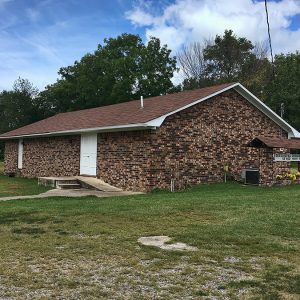
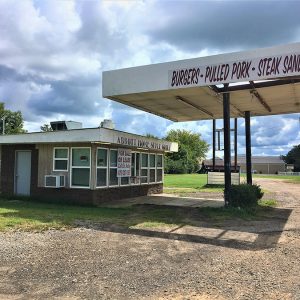
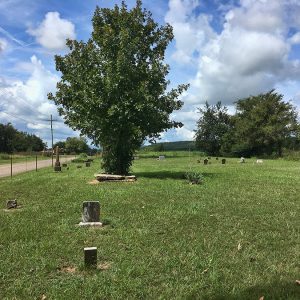
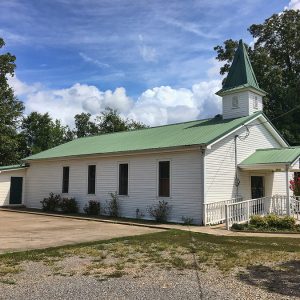
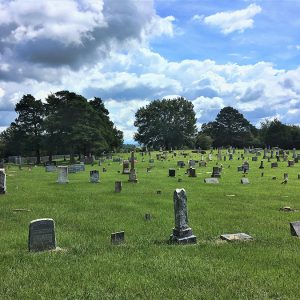
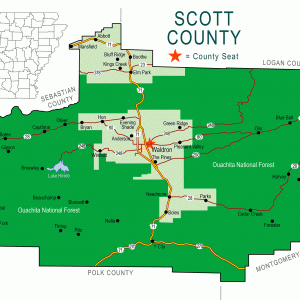




Comments
No comments on this entry yet.